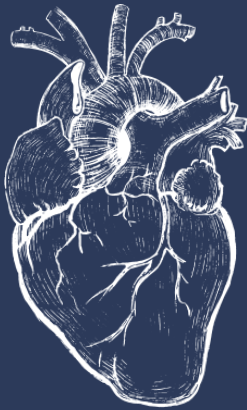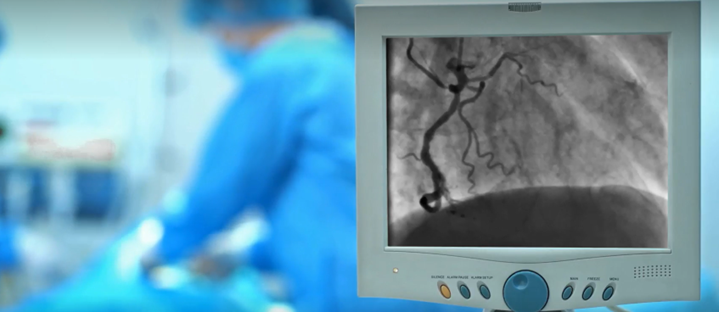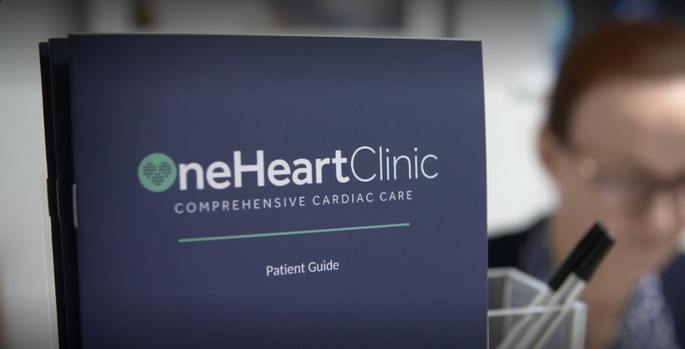What is Coronary Artery Disease?
- By One Heart Clinic
- October 18, 2023

What is
Coronary
Artery Disease?
DR RASHA AL-LAMEE
Dr Rasha Al-Lamee is an Interventional Cardiology Consultant at Imperial College Healthcare NHS Trust and a Reader at the National Heart and Lung Institute within Imperial College London.


What is Coronary
Artery Disease?
The coronary arteries supply blood to the muscle of the heart. The term coronary artery disease refers to a build-up of fatty plaque in the wall of your coronary arteries.
This fatty plaque is made up of cholesterol. As the fat starts to deposit in the wall of the arteries, it can have several consequences. The first is that the fat slowly builds up in the wall of the artery and has little or no effect on how you feel.
Often it is unnoticed and can be picked up incidentally as you have tests for non-cardiac reasons. In other cases, the amount of plaque increases over time and reduces the amount of blood that flows through your coronary arteries to the muscle of your heart.


This can result in chest pain that is called angina. It can be detected by tests that visualise your coronary arteries or tests that detect the amount of blood flow to the heart muscle. This condition is called stable coronary artery disease and is very common. More serious consequences occur when the plaque becomes unstable. As the fatty plaque builds, the surface of the plaque suddenly breaks which results in clot forming on the surface of the arterial wall and within its lumen causing complete loss of blood flow. This is what causes a heart attack. Heart attacks are less common than stable disease but are far more serious and can lead to death or have a significant impact on quality of life.
How do we reduce the
risk of Coronary Artery
Disease?
It is important to recognise the major risk factors for coronary artery disease and consider what we can do to reduce the risk. Smoking, high blood pressure, high cholesterol, diabetes, and a family history of heart disease are some of the most important risk factors. While we cannot do anything to change our genes, the rest of the risk factors are modifiable. They can be improved by lifestyle changes and healthy behaviours. We can also use medications to reduce the risk.
Cholesterol-lowering medications, in particular statins, are some of the best medications we have for reducing the risk of coronary artery disease. While they have received bad press over the years, I really believe in the powerful effects of statins in reducing the risk of heart attacks and death caused by coronary artery disease. The side effects of statins are often over-stated with many saying that they cause tiredness or muscle ache. However, these symptoms are very common, and it is often hard to tell what is due to the statin and what might just be part of everyday life. I find that most of my patients tolerate statins very well and are happy to see their cholesterol go down, knowing that this will have a real impact on their long-term outcomes. The good news is that, if patients truly do not tolerate statins, we now have many alternatives to lower cholesterol and improve the life expectancy and risk of heart attacks.
It is also very important to control blood pressure and diabetes and to add in other medications to reduce risk where possible.
Coronary artery disease remains one of the leading causes of death in the UK. One heart attack occurs in the UK every 5 minutes and three out of ten people having a heart unfortunately do not survive. I aim to do everything I can to improve these statistics and improve the lives of my patients.



Dr Rasha Al-Lamee is an Interventional Cardiology Consultant at Imperial College Healthcare NHS Trust and a Reader at the National Heart and Lung Institute within Imperial College London. She is a British Heart Foundation intermediate clinical research fellow and clinical trialist with expertise in stable coronary artery disease, coronary intervention, invasive physiology and invasive intravascular imaging.
She leads a research group with a focus on clinical trials that impact the care of patients with cardiovascular disease. She believes in rigorous testing of clinical practice and the use of evidence-based medicine in all aspects of medical care.
She designed, conducted and led ORBITA, the first randomised placebocontrolled trial of coronary angioplasty, published in The Lancet. She is the chief investigator of the ORBITA-2, ORBITA-STAR, ORBITA-COSMIC and ORBITA-FIRE trials and has over 130 peer-reviewed publications and a h-index of 33. She is actively involved in the development and recruitment for many multi-centre international clinical trials.
She is a deputy editor at EuroIntervention and an associate editor at the European Heart Journal. She is the NIHR CRN North West London Cardiovascular speciality lead and co-head of the cardiovascular theme of the Imperial Biomedical Research Centre. She is a Deputy Director of Medicine at Imperial College London.